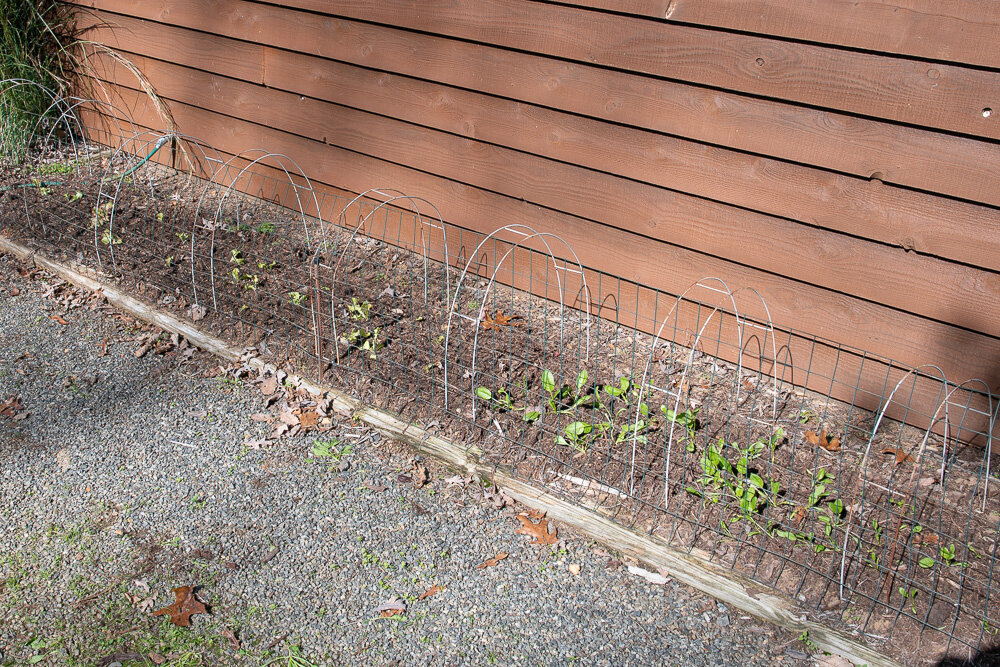by Mark Levisay
As we get closer to (some may have already had) the first frost it’s natural to stop thinking about your garden and start thinking about the upcoming holidays. Why should I spend extra energy on the garden when my plants are all dead, or about to be? In addition to making it look better, there are several reasons to do a good cleaning throughout the garden.
Weeds, disease and pests aren’t done yet
Weeds grow nearly year round, and there may be quite a few hiding among the remaining plants in the garden beds, or along the garden’s borders. If they’re blooming they are trying to set seeds for next year’s weeds, and it’s easier to prevent that from happening than to fight them in the spring. Pulling all of the weeds you can reach will help minimize the amount of weed seeds present next spring. Consider spraying weeds in hard to reach places or borders with herbicide if you can’t pull or dig them up.
Hot peppers will continue to produce until frost, so they'll get cleaned up after that.
Plant diseases, especially the bacterial and fungal diseases so common in the tomato patch, are hard to treat on the growing plants. One way to minimize their damage is to remove all of the diseased plant material from the garden. Think about this stuff as if it were contagious, because it is. Take all of your spent tomato plants, including dry leaves that may fall off, and remove it from the garden, the farther the better. Don’t put this in your compost if you expect to use that compost in the garden in the future.
Insect pests often overwinter, or lay eggs in the plant material that they feasted on during the growing season. Removing the plant material helps cut down on the insects next spring, especially if you dispose of (compost, burn, throw away) the infested plants.
A little prep for next year will pay off
Once you have cleaned off your beds it’s a good time to spread a layer of compost or mulch on the beds. This layer of organic material will help you in several ways. The added organic material will help suppress weed seed germination and growth while improving overall fertility. The added material also feeds and protects small organisms like worms that live in the beds and will help incorporate the organic material into the soil.
A weeded and composted bed ready for winter. The asparagus bed behind it will soon get cut back and covered in a thick layer of compost.
If you have an asparagus bed frost will kill off the ferny green growth. After it turns brown, cut all of the “canes” back to ground level, and put that on the compost heap. Cover the bed with a thick layer of compost and/or mulch. This will suppress weeds and feed the asparagus crowns which overwinter in the soil. In the spring you’ll be ready to enjoy the fresh spears as they appear in April and May!
Fall is also a good time to look at your garden infrastructure and fix any problems you’ve encountered during the growing season. Does water pond up after a heavy rain in your beds or on the pathways? Fixing drainage problems now will help get your beds ready for spring planting. I mulch my paths just to keep the mud in check during rainy periods. If your fencing has holes, or doesn’t always contact the ground, it’s time to fix that too.
Protect fall vegetables
If you’re growing fall vegetables it’s a good time to cover them, if you haven’t already. Brassica crops should have been covered all along to prevent insect infestation. Things like lettuce and spinach will need some protection from hard frosts so those rows should get covered soon. Weed the beds well before you cover as it’s much harder to do once the cover is on!
A bed of fall spinach and lettuce ready to be covered.
With just a little work now, before it gets too cold, you’ll be set up for an early start with spring planting in 2021. Good luck, and happy holidays!
You can e-mail me with any questions at marklevisay@gmail.com.


